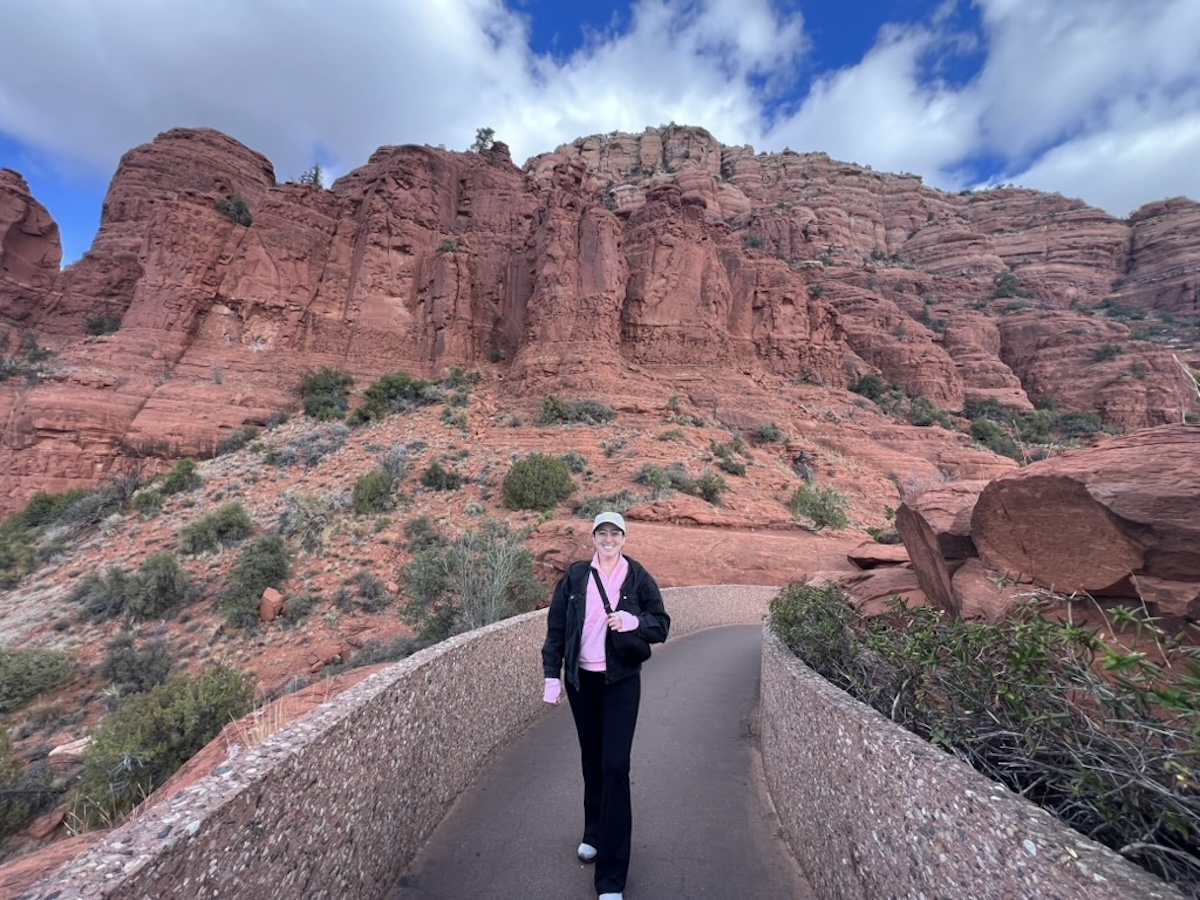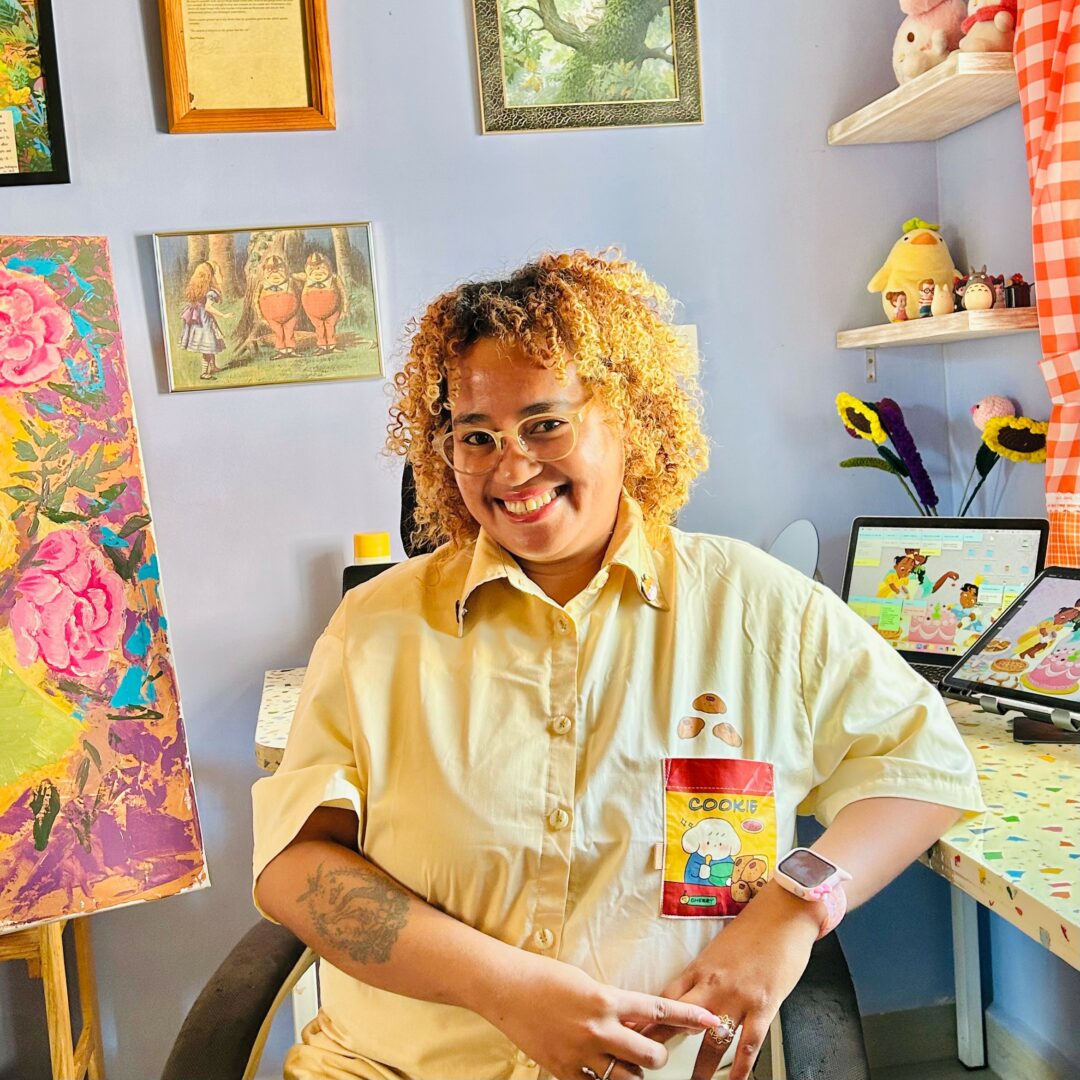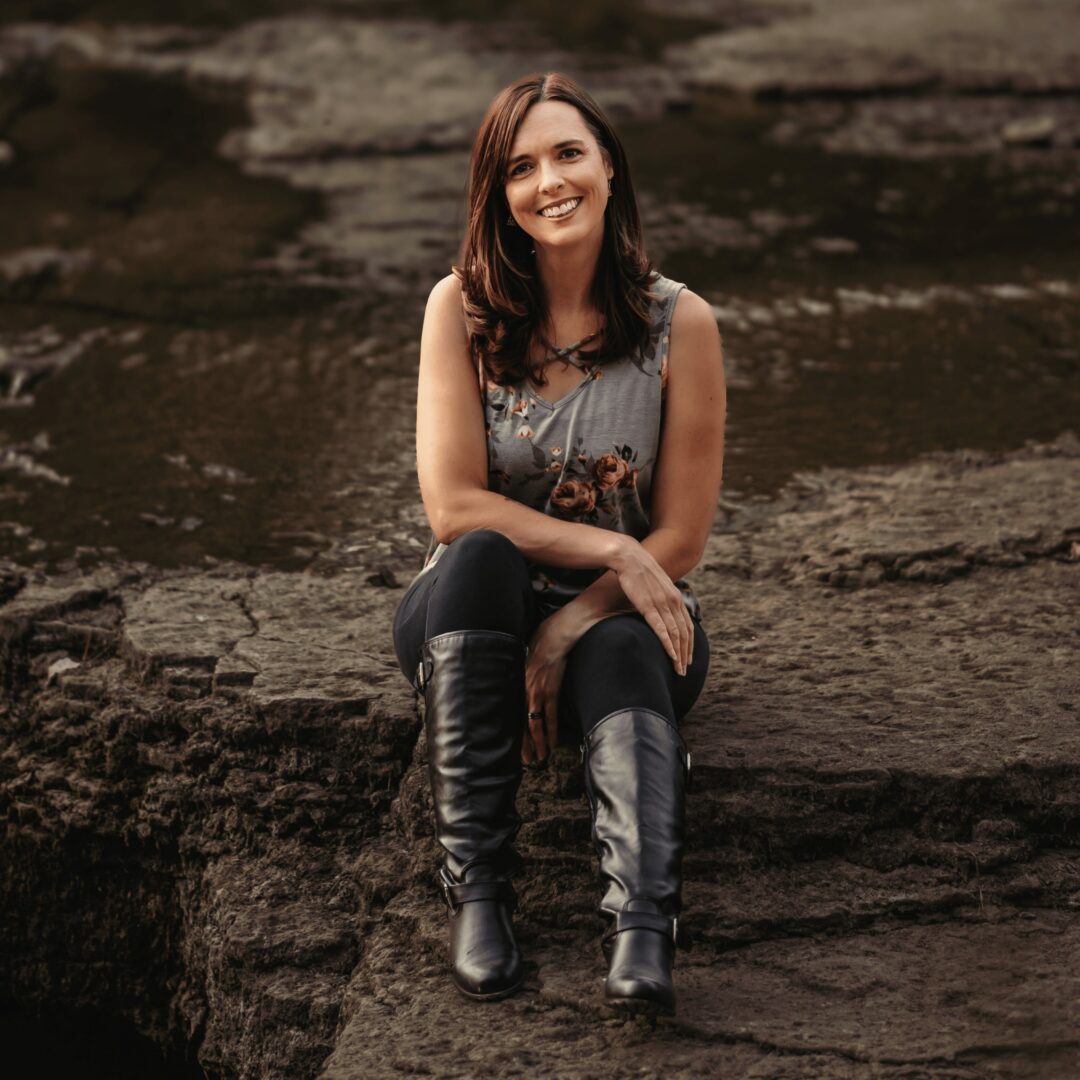We were lucky to catch up with Heather Kranz recently and have shared our conversation below.
Hi Heather, so excited to have you with us today and we are really interested in hearing your thoughts about how folks can develop their empathy? In our experience, most folks want to be empathic towards others, but in a world where we are often only surrounded by people who are very similar to us, it can sometimes be a challenge to develop empathy for others who might not be as similar to us. Any thoughts or advice?
Growing up in Albuquerque, NM with a plethora of exotic pets and a loving family, it wasn’t hard to find opportunities to learn about empathy. My father was a career Navy man, who had graduated from the Naval Academy and lived all over the world with my mother before my sister and I came along. My mother was an artist and animal lover who never shied away from a challenge. My parents imparted an appreciation for diversity in our world and encouraged my sister and I to show kindness to all creatures great and small.
In my grade school years my father was deployed to the Persian Gulf for Operation Desert Storm, which left my mom a single parent raising two young children. I recall times where I felt drawn to the sadness of others, relating to their experience of pain and longing through my own grief over my father’s absence. My father, although a gentle soul, would go on to struggle with severe addiction issues that would rob me of a father, and my children of a grandfather. This early and deeply impactful loss humbled me and gave me appreciation and compassion for other’s painful experiences.
As I grew up, I was drawn to the gentle nature of animals. I was fortunate to grow up with a menagerie at home (including ducks, goats, horses, emus, llamas, and iguanas), but I also enjoyed the time I spent volunteering at various wildlife rescues. I recall one day holding an orphaned and abused chicken and imagining her story. Looking into her eyes, I felt a sense of duty to protect and prevent this type of unnecessary suffering. My empathy towards animals inspired me to become vegetarian and to advocate for animal rights, especially as it relates to factory farming.
As I got older, I began to find myself the source of support and comfort for those around me. I felt touched that others gravitated towards me with their difficult experiences, and I, in turn, welcomed my own sense of vulnerability—seeing it as a universal experience that banded us together. As my professional schooling and life experiences expanded, so too did my empathy. As a clinical interviewer at The Menninger Clinic in Houston, TX, I had the great privilege of getting to know a variety of patients and their life stories. So universal was suffering, that I felt drawn to do more in the field of psychology. I was accepted into the PGSP-Stanford Psy.D. Consortium in Palo Alto, CA, where I completed my doctoral degree while working in a variety of inpatient, outpatient, and college counseling settings.
As a psychologist, I am entrusted with my client’s vulnerable emotional experiences, and through my own struggles and setbacks have learned to hold space and compassion for even the most challenging of situations. I often joke, “it takes one to know one,” when my clients imply that perhaps I cannot relate to their feelings of shame and emotional distress. I think sometimes people forget just how much our lives guide us to the professions we ultimately assume. The joke in graduate school was that research was actually “me-search” because there was a tendency to be drawn to working with the mental health conditions you most related to. Getting into the field of psychology I had secretly hoped to somehow gain “immunity” to the perilous struggles of emotional distress through advanced knowledge of the human condition. What I discovered, however, is that you cannot buffer yourself from life. Everyone suffers, and education, no matter how extensive, cannot not protect you from the seasons of life when distress or despair visit you. What it can do, however, is help you to better understand your own experiences and those of others, through a compassionate and humane lens. Doing so can help you feel held and seen in a world that can often feel chaotic and lonely. I think psychology can provide us with a reminder of our shared humanity: the fact that none of us, no matter how accomplished, have it all figured out, and that’s okay.

Great, so let’s take a few minutes and cover your story. What should folks know about you and what you do?
I am currently a clinical psychologist in private practice, seeing both couples and individuals. I am really proud to be in this profession, as it affords me the opportunity to spend my days helping others to find meaning and purpose in their most challenging life experiences. There is a magical thing that happens in the therapy room; clinically speaking it’s called the “therapeutic alliance,” but practically speaking, it’s the unique bond that is formed between therapist and client. There are few opportunities in life to take part in such a unique relationship; one in which you walk alongside someone in their life journey, helping them find their own path without any ulterior motive or expectation from them. I find the work I do deeply meaningful; the chance to sit with another person and support them through suffering and distress, to let them know they are seen and heard—it’s powerful. Something I treasure most about couples’ work is the ability to function as a type of “emotion translator;” helping two people understand and speak the same emotional language. I draw from a variety of theoretical orientations in my practice, including: the work of Carl Jung, Emotion Focused Therapy, Acceptance and Commitment Therapy, as well as Psychodynamic Therapy. I am particularly drawn to incorporating a client’s spiritual values and experiences into our work, as I feel it adds a depth of richness and meaning that many standardized protocols lack.
If you had to pick three qualities that are most important to develop, which three would you say matter most?
It’s never easy when you are just starting out because there are endless ideas and opportunities, but a finite amount of time, energy, and resources. I think the qualities that best served me in obtaining a doctoral degree and becoming a clinical psychologist were: discipline, integrity, and courage. The more I know, the more I realize I don’t know, and this can be applied to the human experience as well. I used to think I was capable of anything and everything, now I realize that is not true, I have my limitations as we all do, and it’s okay to be human. There are a few pivotal moments in my life that I often think back upon; times when my life path took a significant turn. These moments I contribute to synchronicity and a greater power beyond our human comprehension. The first of these moments was switching Master’s programs the day before classes began on a whim, and a chance meeting with a professor who would ultimately launch me into my first career as a vocational rehabilitation counselor. The second, was a serendipitous encounter with a psychologist who inspired me to apply for a job at the Menninger Clinic; a job I would go on the cherish for the people and experiences it brought into my life. The most recent of these moments was a sudden and strong urge to stop and pray for discernment after being accepted into my doctoral program, and the subsequent accomplishments that stemmed from this decision-point. I would encourage you to look at the world with a sense of excitement and wonderment. To be curious about the people, places and opportunities that come your way. I believe these are not merely coincidences but rather meaningful timepoints that you will reflect upon throughout your life. There is no prescribed path that will work for everyone, you must find the courage to create your own. Trust in the universe, a higher power, elements that bring you peace, and know that you are exactly where you need to be in this moment, the rest will fall into place.

What do you do when you feel overwhelmed? Any advice or strategies?
I am no stranger to the sense of overwhelm, perhaps it’s one of the reasons I decided to become a psychologist. When I am in the midst of one of these “seasons” (as I like to call them), I find it helpful to get out of your mind and into the world using your senses to soothe and ground you. This might look like: a walk outside, a hot bath, a cold drink, physical exercise, prayer, listening to contemplative music or podcasts, lighting some palo santo, holding crystals, a good cry, journaling, or other creative endeavors that help me to feel like I can keep the sensation moving through me, rather than feeling stuck. Never underestimate the power of a good cry; it literally and figuratively cleanses you of toxins (look it up!). Whatever you do, keep a cheat sheet of the ideas somewhere- in a journal, on your phone, on a post-it—so that you have a reference point and guidance when you are feeling vulnerable and overwhelmed. And lastly, hang in there! Things are always changing; life is constantly unfolding. Give yourself some grace, and recognize “this too, shall pass.”
Image Credits
N/A
so if you or someone you know deserves recognition please let us know here.




